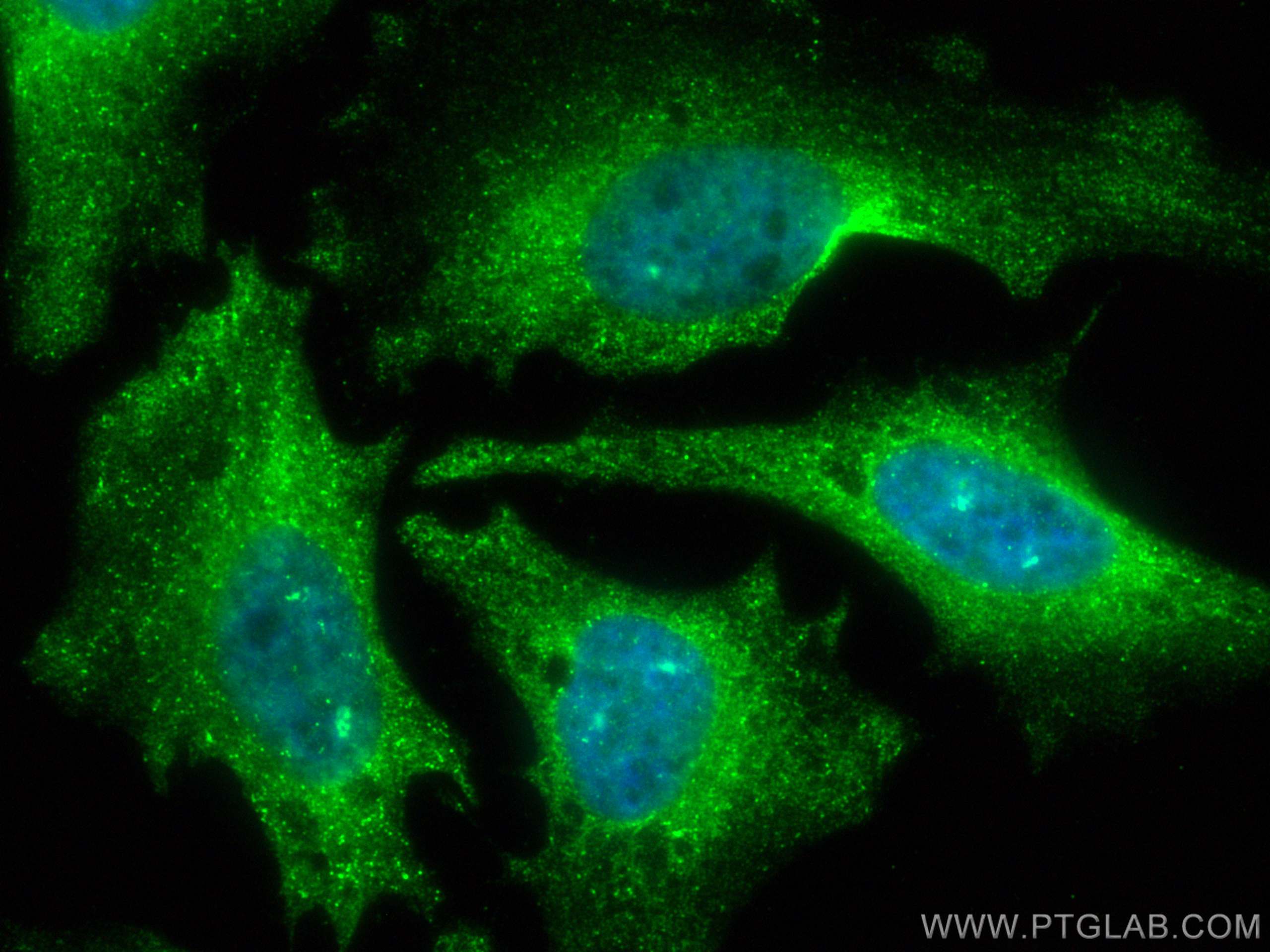PPP1CC Monoklonaler Antikörper
PPP1CC Monoklonal Antikörper für IF
Wirt / Isotyp
Maus / IgG1
Getestete Reaktivität
human, Maus, Ratte
Anwendung
IF
Konjugation
CoraLite® Plus 488 Fluorescent Dye
CloneNo.
2G11C3
Kat-Nr. : CL488-68122
Synonyme
Galerie der Validierungsdaten
Geprüfte Anwendungen
| Erfolgreiche Detektion in IF | HeLa-Zellen |
Empfohlene Verdünnung
| Anwendung | Verdünnung |
|---|---|
| Immunfluoreszenz (IF) | IF : 1:50-1:500 |
| It is recommended that this reagent should be titrated in each testing system to obtain optimal results. | |
| Sample-dependent, check data in validation data gallery | |
Produktinformation
CL488-68122 bindet in IF PPP1CC und zeigt Reaktivität mit human, Maus, Ratten
| Getestete Reaktivität | human, Maus, Ratte |
| Wirt / Isotyp | Maus / IgG1 |
| Klonalität | Monoklonal |
| Typ | Antikörper |
| Immunogen | PPP1CC fusion protein Ag32348 |
| Vollständiger Name | protein phosphatase 1, catalytic subunit, gamma isoform |
| Berechnetes Molekulargewicht | 35 kDa |
| Beobachtetes Molekulargewicht | 35 kDa |
| GenBank-Zugangsnummer | BC014073 |
| Gene symbol | PPP1CC |
| Gene ID (NCBI) | 5501 |
| Konjugation | CoraLite® Plus 488 Fluorescent Dye |
| Excitation/Emission maxima wavelengths | 493 nm / 522 nm |
| Form | Liquid |
| Reinigungsmethode | Protein-G-Reinigung |
| Lagerungspuffer | BS mit 50% Glyzerin, 0,05% Proclin300, 0,5% BSA, pH 7,3. |
| Lagerungsbedingungen | Bei -20°C lagern. Vor Licht schützen. Nach dem Versand ein Jahr stabil. Aliquotieren ist bei -20oC Lagerung nicht notwendig. 20ul Größen enthalten 0,1% BSA. |
Hintergrundinformationen
PPP1CC, also named as PP-1G, belongs to the PPP phosphatase family and PP-1 subfamily. Protein phosphatase 1 (PP1) is essential for cell division, and participates in the regulation of glycogen metabolism, muscle contractility and protein synthesis. It is involved in regulation of ionic conductances and long-term synaptic plasticity. PPP1CC may play an important role in dephosphorylating substrates such as the postsynaptic density-associated Ca2+/calmodulin dependent protein kinase II.
Protokolle
| Produktspezifische Protokolle | |
|---|---|
| IF protocol for CL Plus 488 PPP1CC antibody CL488-68122 | Protokoll herunterladen |
| Standard-Protokolle | |
|---|---|
| Klicken Sie hier, um unsere Standardprotokolle anzuzeigen |


